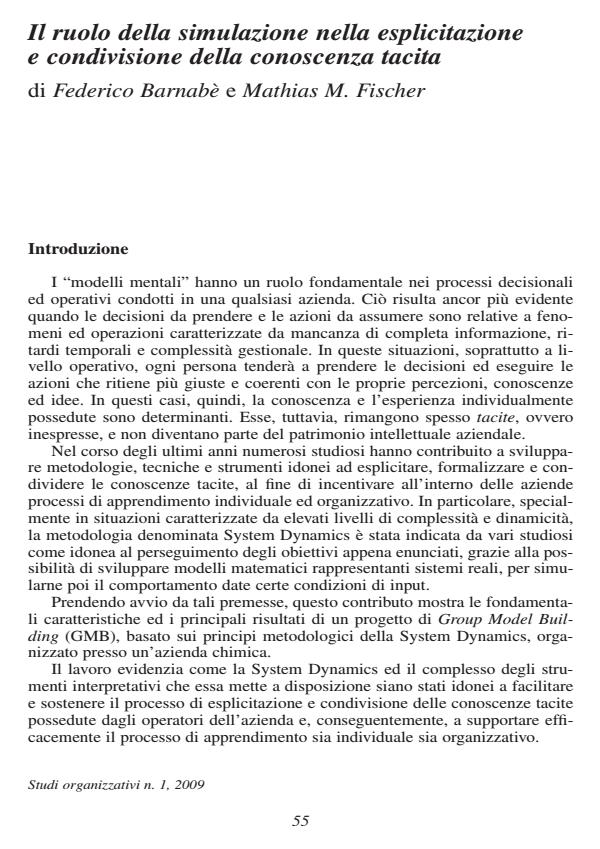Il ruolo della simulazione nella esplicitazione e condivisione della conoscenza tacita
Titolo Rivista STUDI ORGANIZZATIVI
Autori/Curatori Federico Barnabè, Mathias M. Fisher
Anno di pubblicazione 2009 Fascicolo 2009/1 Lingua Italiano
Numero pagine 23 P. 55-77 Dimensione file 863 KB
DOI 10.3280/SO2009-001003
Il DOI è il codice a barre della proprietà intellettuale: per saperne di più
clicca qui
Qui sotto puoi vedere in anteprima la prima pagina di questo articolo.
Se questo articolo ti interessa, lo puoi acquistare (e scaricare in formato pdf) seguendo le facili indicazioni per acquistare il download credit. Acquista Download Credits per scaricare questo Articolo in formato PDF

FrancoAngeli è membro della Publishers International Linking Association, Inc (PILA)associazione indipendente e non profit per facilitare (attraverso i servizi tecnologici implementati da CrossRef.org) l’accesso degli studiosi ai contenuti digitali nelle pubblicazioni professionali e scientifiche
Simulation’s Role in Sharing Tacit Knowledge - Managers and operators working in complex and dynamic domains usually take their decision upon incomplete information and a relevant role is played by personal expectations and beliefs, as well as by their own mental models. In such contexts tacit knowledge becomes crucial, being the basis on which individuals take decisions and carry out actions. Therefore, it becomes essential to explicit, formalize and share tacit knowledge among all the employees and within the organization. In this regard, over the past few years many methodologies and techniques have been mentioned as useful for tacit knowledge management purposes but further evidence is still needed. Starting from these considerations, this paper suggests that simulation models can play a fundamental role, being instruments to support strategic thinking, group discussion and learning in teams, and providing the bases for meaningful learning experiences relying on the use of computer based management flight simulators. In more detail, the paper presents the outcomes and the main features of a group model-building project at a chemical company. The process of knowledge elicitation and knowledge sharing, the gaining of a better common understanding about the production process and the development of the different mental models of the operators are some of the goals the project aimed to pursue. Among its findings, the paper shows that the method described in this work could be used in a variety of production processes in order to sustain processes of individual and organizational learning.
Keywords: Simulation, system dynamics, tacit knowledge, learning.;
Federico Barnabè, Mathias M. Fisher, Il ruolo della simulazione nella esplicitazione e condivisione della conoscenza tacita in "STUDI ORGANIZZATIVI " 1/2009, pp 55-77, DOI: 10.3280/SO2009-001003